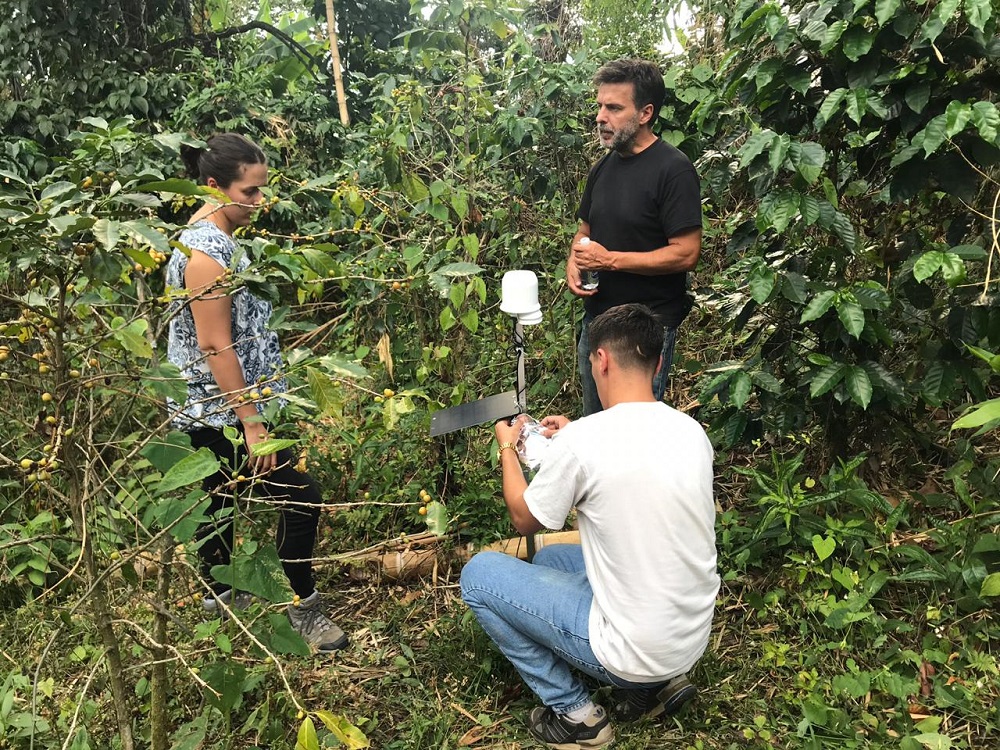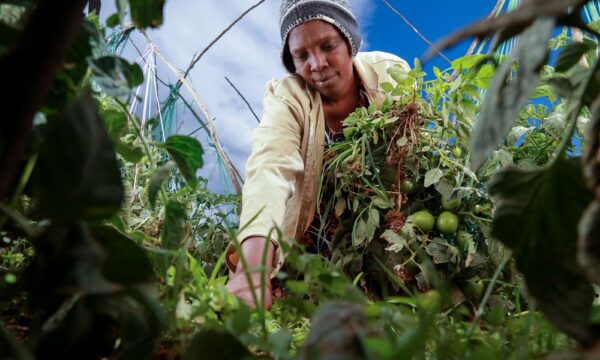
The UK is hosting the 26th UN Climate Change Conference of the Parties (COP26) in Glasgow from 31 October to 12 November 2021. This is the final article in a series of four blogs by Jonathan Casey, Climate Change Manager at CABI, in support of CABI’s involvement at the event.
Key messages:
• New climate pledges and policies need to prioritize biodiversity and the role of nature-based solutions in climate change mitigation and adaptation
• CABI has pioneered nature-based solutions for pest, weed, and disease management for nature-positive agriculture and ecosystem management
• Grassland restoration and ecosystem regeneration can be more effective than afforestation projects for greenhouse gas mitigation
Nature-based solutions involve working with natural ecosystems, utilizing the flora and fauna to address societal challenges including climate change adaptation and mitigation. They involve the protection, restoration or management of natural and semi-natural ecosystems, preserving and enhancing biodiversity, and should be designed and implemented in inclusive ways with local communities (Seddon et al, 2019).
Nature-based solutions
CABI has pioneered nature-based solutions for pest, weed, and disease management in agriculture and ecosystem management. By harnessing the combined powers of biological control products, natural pest enemies, the restoration of native habitats, and crop diversity, CABI has supported rural communities in building resilience to environmental and climate change hazards.
In Colombia, CABI has worked with partners to support smallholder coffee farmers with nature-based solutions to tackle climate change and insect pest threats. More than 75% of coffee crops in Colombia are affected by the coffee berry borer beetle, the range of which is expanding due to climate change, while increased temperatures, extreme heat, and higher humidity are all negatively affecting coffee production in the country. Through harnessing nature-based solutions, CABI has helped farmers face these challenges using a combination of natural biocontrol products made from fungi, improved habitats for natural enemies of insect pests, and increased use of agroforestry practices to provide shade for the coffee plants, all enhanced by a digitally-enabled early warning and advisory service.
Hub of biodiversity
In East Africa, CABI has supported the restoration of native grasslands through the management and removal of invasive plant species, including Prosopis juliflora. These grasslands have been proven to capture and store more carbon in the soils, and at greater depths, than the invasive bush and tree species, helping mitigate greenhouse gas emissions and demonstrating alternative approaches to afforestation projects (Mbaabu, et al., 2020). The native grasslands are also a hub of biodiversity and support other ecosystem services such as reversing land degradation, the regulation and storage of water flows, and forage for livestock (Bardgett, et al., 2021).
Nature-based solutions have been shown to be more effective at tackling climate adaptation and mitigation, with fewer ‘trade-offs’ than alternative approaches (Chausson, et al., 2020). As climate pledges and policies are revised, it is important they raise ambition for nature-positive agriculture, prioritizing biodiversity and nature-based solutions in climate change mitigation and adaptation that work for both people and the planet.
Additional information
Main image: CABI scientists work in the field to find natural enemies for pests and diseases of coffee in Colombia (Credit: CABI).
United Nations Climate Change Conference 2021 (COP26)
The COP26 summit is bringing parties together to accelerate action towards the goals of the Paris Agreement and the UN Framework Convention on Climate Change. Find out more from the website https://ukcop26.org/
Climate change and biodiversity
To find out more and discuss opportunities to work together please visit https://www.cabi.org/about-cabi/climate-change/ and/or email us: enquiries@cabi.org
Climate Change Briefings
This blog relates to the CABI Climate Change Briefing ‘Invasive species management: a nature-based solution for climate and environment.’
Three other briefings have also been published. These include ‘Invasive species management: a policy tool for integrated climate adaptation,’ as well as ‘Climate-smart pest management for nature-positive agriculture,’ and ‘Pest risk early warning systems in a changing climate.’
Related News & Blogs
Biodiversity loss: How can we reclaim our landscapes from threats to biodiversity?
On 22nd May, we mark the International Day for Biological Diversity. In this article, CABI’s Global Director for Invasive Species Dr Hariet Hinz looks at how we can reclaim our landscapes from threats to biodiversity. Biodiversity loss is proceeding at…
22 May 2025




